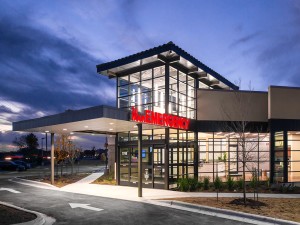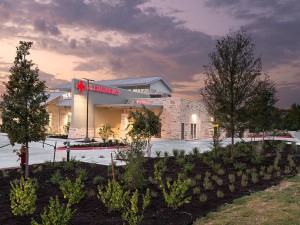By: Robert Smith,CCIM, SIOR,
President Lockard Companies

Five Star ER Round Rock, TX
For the all the controversy surrounding the Affordable Care Act (ACA) — aka Obamacare — one thing is certain: the law will have the greatest impact on health care since the creation of Medicare. And, like the ACA or not, it could spur a massive building boom in health care real estate.
The medical industry is reviewing its current facilities to determine how to address the changes in care that the ACA will bring. Health Facilities Management magazine’s 2014 Hospital Construction Survey showed 51 percent of respondents were considering changes to their existing facilities or campus design in response to the ACA.
Among the types of facilities being considered for future development according to the survey, the most cited were emergency departments, medical office buildings, outpatient facilities in neighborhood settings and primary care clinics in neighborhoods.
So why will the ACA have such an impact? In a nutshell, the law will change the way physicians practice medicine. Medical care will have to emphasize value over volume to comply with the law. They will have to do this despite 1). a secondary emphasis of the law on lowering costs; and 2). a much higher volume of patients. Thus, the facilities they use will have to change as well.
 Waterloo, IA (September 22, 2015) – Lockard has finalized a ground lease of 1331 Flammang Drive in Waterloo, IA to Chick-fil-A, Inc. Dustin Whitehead, CCIM with Lockard Realty Company represented the landlord. Becky Richards with David Hicks Lampert Brokerage represented tenant, Chick-fil-A.
Waterloo, IA (September 22, 2015) – Lockard has finalized a ground lease of 1331 Flammang Drive in Waterloo, IA to Chick-fil-A, Inc. Dustin Whitehead, CCIM with Lockard Realty Company represented the landlord. Becky Richards with David Hicks Lampert Brokerage represented tenant, Chick-fil-A.


